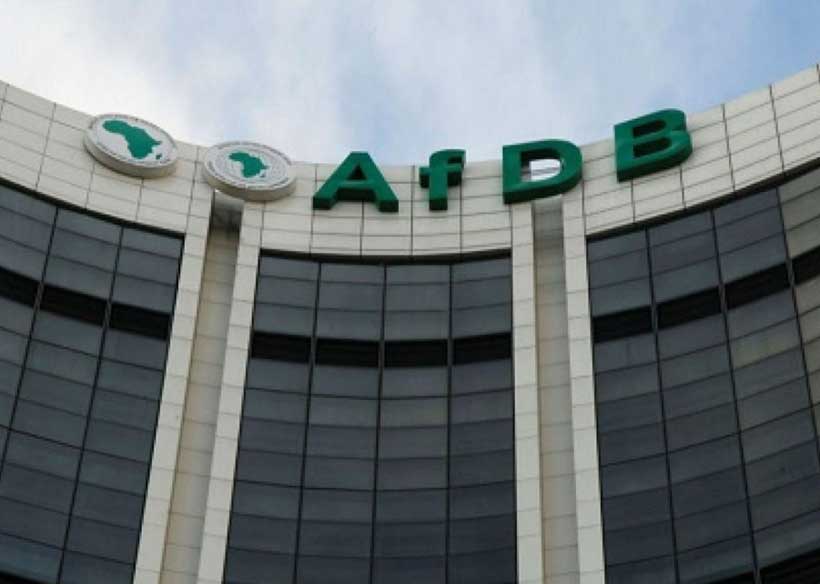AfDB urges Botswana to unlock $116bn national wealth through bold reforms
The report highlights that Botswana’s total national wealth was estimated at over $116 billion in 2020, more than six times its GDP at the time.

- Country:
- Ivory Coast
The African Development Bank (AfDB) has called on Botswana to implement a set of strategic reforms to unlock its vast wealth potential and drive sustainable economic growth. The appeal was made during the official launch of the 2025 Country Focus Report (CFR) for Botswana, held on 16 September 2025 under the theme “Making Botswana’s Capital Work Better for its Development.”
Untapped national wealth and fiscal strength
The report highlights that Botswana’s total national wealth was estimated at over $116 billion in 2020, more than six times its GDP at the time. This wealth is distributed across four main categories: human, natural, financial, and produced capital. Natural capital—diamonds, forests, biodiversity, and renewable resources—remains central to Botswana’s economy and ecological heritage, while human and financial capital represent major opportunities for long-term transformation.
The report also underscores Botswana’s strong domestic fiscal capacity, pointing to a tax-to-GDP ratio exceeding 20 percent, well above the Sub-Saharan Africa average of 16 percent. This fiscal strength has enabled the government to finance the bulk of its national budget without resorting to excessive borrowing.
However, with diamonds contributing nearly 80 percent of export revenues, the AfDB warns that Botswana’s economy remains dangerously dependent on a single sector. The report stresses that diversification, structural reforms, and stronger natural capital management are urgently needed to safeguard resilience against global shocks.
Current economic headwinds
Despite its wealth, Botswana’s economy contracted by 3.0 percent in 2024 and is projected to remain subdued in 2025. The slowdown is attributed to gaps in infrastructure, fiscal vulnerabilities, geopolitical instability, and external shocks including climate change, rising tariffs, and declining global trade.
The AfDB cautioned that these headwinds threaten to erode resilience unless addressed through targeted investments in human capital, governance, and economic diversification.
Government’s response and priorities
Speaking at the launch, Tshokologo Kganetsono, Permanent Secretary at the Ministry of Finance, welcomed the AfDB’s recommendations.
“Botswana is endowed with abundant resources—human capital, mineral wealth, arable land, national parks, forests, renewable energy, and a strategic location in Southern Africa,” he said. “We are hopeful that the recommendations from the report will assist in unlocking Botswana’s capital.”
He also emphasized the importance of strategic alignment among public and private sectors, along with development finance institutions, to tackle challenges posed by climate shocks, geopolitical instability, and a fragile external environment.
Kganetsono called for sustained AfDB support, as well as contributions from other international development partners, to provide both financing and technical assistance.
AfDB’s reform agenda for Botswana
AfDB officials outlined a set of priorities to drive Botswana’s development:
-
Strengthening institutional frameworks – particularly governance in state-owned enterprises and municipalities.
-
Scaling up development finance – to close infrastructure gaps and promote diversification.
-
Investing in human capital – through education, skills training, and innovation to achieve structural transformation.
“Botswana has the fiscal space and resource base to achieve significant structural change if it aligns reforms strategically,” noted Rees Mwasambili, AfDB’s Chief Country Program Officer for Southern Africa.
Paul Mpuga, Division Manager for Macroeconomic Policy, Debt Sustainability and Forecasting at the AfDB, presented the report findings and urged Botswana to seize this moment to recalibrate its growth model.
A high-level dialogue on transformation
The launch event gathered senior government officials, private sector leaders, civil society, and development partners. Among the AfDB officials in attendance were Edward Sennoga, Lead Economist for Southern Africa, and Theo Braimah Awanzam, Senior Country Economist for Botswana, who moderated discussions.
A panel session explored strategies to unlock Botswana’s capital more effectively. Speakers included:
-
Sayed Timuno, Ministry of Finance
-
Baruti Regoeng, Ministry of Minerals and Energy
-
Matthews Phiri, Ministry of Higher Education
-
Thompson Kedibonye, Botswana Institute for Development Policy Analysis
The panellists discussed economic diversification, institutional strengthening, financial sector reforms, and regional trade integration as pathways to resilience.
Adding to the deliberations, Kevin Urama, AfDB Chief Economist and Vice President, delivered a video message stressing the urgency of turning Botswana’s wealth into sustainable prosperity.
Looking ahead
The 2025 CFR makes clear that Botswana possesses significant untapped wealth and fiscal strength but must act decisively to channel its capital into inclusive and climate-resilient development. With coordinated reforms, stronger institutions, and support from development partners, Botswana has the potential to transform its resource wealth into broad-based economic opportunities for its citizens.










